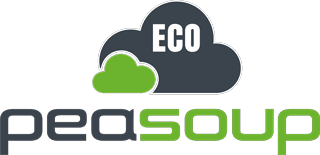Advantages of Hybrid Cloud
The main objective of combining public and private clouds is to establish a unified, automated, and well-managed computing environment. In a hybrid cloud, non-critical activities are carried out by the public cloud, while critical activities are handled by the private cloud.
Flexible & secure
Hybrid Cloud is the perfect solution for businesses that demand the agility and scalability of the public cloud while keeping their sensitive data secure in a private cloud environment. With Hybrid Cloud, you can enjoy the best of both worlds, without compromising on security or flexibility.
Cost effective
Hybrid cloud costs less than the private cloud and enables organisations to save on infrastructure and application support.
Security
Hybrid cloud is the ultimate solution when it comes to security concerns. It ensures that all critical activities are taken care of by the private cloud, which is known for its exceptional security. With its advanced security measures, hybrid cloud provides a reliable and secure environment for all your data and business operations.
Use Cases
Data center extension
PeaSoup Cloud helps customers with data centre extension, including backup and disaster recovery to the cloud. The hybrid model helps to offload applications and services to the cloud making security, storage, and access control infrastructure more robust.
Data offloading
Businesses are generating a huge amount of data due to the increasing use of IoT devices. Some of that data needs to be processed locally because it can’t be easily migrated to the cloud due to cost, size, bandwidth, or timing constraints. Organisations want a consistent hybrid cloud architecture to process data on premises and easily move data to the cloud for long-term archival.
Backup & DR
PeaSoup Cloud gives enhanced security from network separation (air gapping) and offers an end-to-end backup and disaster recovery solution that’s simple, cost-effective, and can be easily integrated with your existing on-premise data protection.
VMware Native
PeaSoup cloud is VMware native. So, if you run your on-premises workloads on VMware virtualisation software and want to leverage your investment, as you start moving to the cloud, the same VMware skills and toolsets are needed to manage infrastructure on the PeaSoup cloud.
Sustainability
We are focused on efficiency and continuous innovation across our cloud infrastructure, as we continue on our path to powering our operations with 100% renewable energy by 2025. PeaSoup is committed to achieving net-zero carbon by 2040.
Testimonials
Get started with Hybrid Cloud
Why PeaSoup for Hybrid Cloud
100% Environmental
Individual Approach
Simple Costs
Onboarding & Management
Customer Support
Introducing VMware-as-a-Service (VMWaaS)
Whether you’re planning, or have already started, a multi-site strategy, PeaSoup can provide an end-to-end VMware solution, combining the benefits of local and cloud infrastructures.
Complementing our VMware vCloud offering, we can now provide and manage VMware licences for local installations.
Consumption-based licensing with PeaSoup’s expertise can help modernise your VMware infrastructure without a large upfront investment.
We perform an initial health check to optimise VMs within your environment, consolidating existing resources and maximising existing investments in your VMware estate.
PeaSoup VMware Services - What & How
- vSphere, vROps, vSAN, NSX, SRM and Horizon
- 1st and 2nd line support from PeaSoup with managed escalation to VMware as needed
- Hybrid local environment into the cloud
- Scale & flex as you run
- Usage meter - after the deployment and setup, data is used to validate consumption
Common questions
Hybrid cloud usually refers to a mixed computing, storage, and services environment made up of on-premises infrastructure and private or public cloud services.
The primary benefits of a hybrid cloud is agility and cost-savings; to adapt and change direction easily and quickly; huge savings on IT infrastructure build and management.
For example, you can move your existing on-premise applications, operational systems, and sensitive data to the cloud for greater accessibility and security.
Or, you could run and store some of your big data using private cloud so you keep it separate from your primary network.
A VPN (Virtual Private Network) provides an online privacy and anonymity by creating a private network from a public internet connection. A VPN mask your IP (internet protocol) address so your online activities are almost untraceable.


